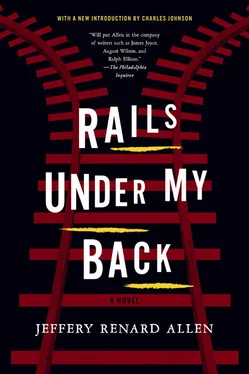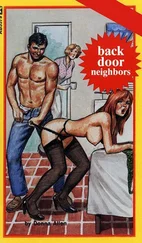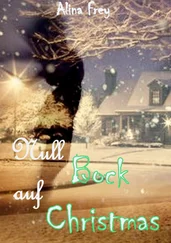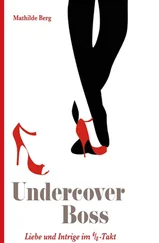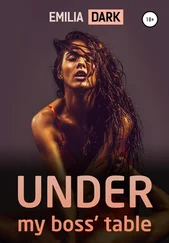Hatch.
Glad to meet you.
Hatch says nothing. He is not glad.
Where you live? The roly-poly boy with a soda-stained red clown mouth asks.
On Seventy-second Street between Constance and Bennett.
Hey, I live right round the corner from you.
Why he speaking to me? Why did he choose me? I don’t need nobody to play wit.
Yall live in a house?
No. A part ment. We got mice too.
Yall got mice?
Yeah. Do yall?
Yeah. You better watch out. Them mice grow into rats.
Damn you stupid. Don’t you know nothing? Mice ain’t no rats. They a different species.
Oh.
Hatch looks Abu over, needing bigger eyes to sight fully his fat. What’s that you wearin?
My uniform.
Uniform?
Uh huh.
You in ROTC or something?
Nawl. Kids can’t be in no ROTC. My dad was. I’m a Scout.
A what?
A Cub Scout?
That like a Boy Scout?
Yeah. And Weblos. Cept we little kids and they big.
Okay.
You want to become a Scout? Join my pack? Pack Five Hundred.
What’s a pack?
A group of bears.
Bears?
Baby bears.
Hatch thinks about it. Abu does look something like a baby bear. What I get if I join?
We go on trips, make fires, learn how to use a compass, recite our oath, go—
Is that all?
Abu watches Hatch for a moment. Well, my mother a den mother.
A what?
A den mother. And we have lots of fun. We—
Do I get to wear a uniform like that?
Yeah, but yo parents gotta buy it.
Sheila buys it. Stitches yellow square numbers (500) into the blue khaki shirt, her needle musical in the cloth, a baton calling forth rhythm from the yellow square keys. She starches and irons the shirt. Starches and irons the crisp blue pants. Buys and blocks the half-globe blue baseball cap. Buys the yellow kerchief and shows you how to roll two corners into tight pigtail braids so that the remaining corners form a neat triangle — a bear cub centered inside it — beneath your nape. Slides on the kerchief holder. Polishes your best black shoes.
Uncle John! Uncle John! I’m a Scout.
What?
A Cub Scout of America. How you like my uniform?
ABU BOWS HIS HEAD at the sound of thunder, clasps his hands at clapping lightning, shuts his eyes at the sight of televised floods, and fears a tornado in every wind. He forms a steeple with his fingers, then whispers a prayer over his hamburger and french fries. He performs a slow order of dutiful chores. Mrs. Harris (mother and den mother) gives him permission to play. Abu and Hatch spill out Hatch’s collection of Hot Wheels cars — I only play with the best; they like real cars, like my Uncle John’s — roll them over rugs, under tables, up walls and banisters, down noisy pipes. They make tow trucks of their hands— We can pull them anywhere —and motors of their mouths. Rrrrr rrrrrr. They puzzle over scale-detailed trains. They spend hours of bent concentration constructing model tanks, battleships, and airplanes, military and civilian. Battle monsters (Godzilla, King Kong, Dracula, the Werewolf) against Superheroes (the Hulk, the Iron Man, Spiderman). Then they pit skills. Abu beats Hatch at checkers. Hatch can sense no strategy in the game and blindly moves the plastic discs from one black square to another. But he beats Abu at chess, game after game, hour upon hour— Look, Hatch. We don’t stop playing until I win a game —and always under twenty moves.
Who taught you how to play?
My Uncle John.
They wear serious faces, masks, as they move the chess pieces. Hatch remains silent, focused on the magic of the unspeakable. He absorbs the plastic power of each piece. The pieces flow mobile with a self-determined plan and will. His hand moves knifelike, cutting patterns.
Abu, Uncle John says. His eyeglasses are like flying saucers, high and still, reflecting over the entire position of the board. Move your rook to—
Stop kibitzin, Uncle John! You jus mad that I beat you.
Uncle John, who taught you how to play?
Spokesman. He says it’s based on medieval warfare.
Spokesman knows everything.
Well, who taught you how to play the game?
You did.
Don’t forget it.
HATCH AND ABU walk far and fast — Hatch leads the way with a firm military step — until one or the other (usually Abu) says, I quit. They discover a place so far away that it has no name. Grass, trees — the place breathes green. The ground slopes down into a deeper green, an area entirely shaded from the sun where you can pick patches of sunlight from grass beneath an oak tree. Lie and read. White water flows down over clean black stones. Fill your empty canteen with the clean-tasting water. The river glows with the full benefit of the sun’s rays, down to the stones shining like jewels. Birds and fish move in a single stream. Sunlight skims the waves; the water flashes like a buckle. You imagine it the sea, crimson as fire, and the patch of land at its center, an island retreat. You touch the water, and it replies, Yes. No matter how much or how far you walk you will never find where it begins or ends. At one point, it spills white steam against the surrounding rock — you toss a stone and listen to it plunge roaring into a black watery pit — rising yet somehow still, breath set in steel.
Wet, they sit in a dry space against a tree. The sun soon follows. Makes a square patch on the bark. Dissolves in your thoughts.
Say, you say, man is the measure of all things.
What?
Jus say, I hate God.
Don’t say that, Abu says.
I repeat, say, I hate God. You speak in a place where you can wrestle with your shadow and never lay hold of it.
No, Abu says.
Afraid?
You don’t believe in God?
No. Why should I? He does terrible things. Why would he let Cookie deform and die? Kill Nap? Kill R.L.? Chop off Sam’s leg? If God exists — you poke out your chest — let him strike me dead.
You better not say that. Abu scoots away from you.
We are dwarfs on the shoulders of gods, you say. The words roll across the surface of your tongue. Words you had discovered in your wide reading. We can see farther into the distance than our parents and grandparents could see. Wise up.
DOWN DOWN IN WEST MEMPHIS, Lula Mae rewards you with a present, a sunburst Sears, Roebuck guitar.
You doing good in school, Lula Mae said.
Well. I’m doing well.
But I hear yo math ain’t too good. Strive to put the bottom rail on top.
The train ride home, you sit the guitar in the seat beside you— Red, move outa the way. Sit back there. And keep yo hands off it: it ain’t no toy —and touch it like a friend. Home, you perch on the edge of your bed. Slant the guitar across your body. Brush the elevator-cable-thick strings but barely raise a note. Hit it harder, Jesus says. You hit it harder, give all six strings — you counted them — a firm karate chop. The hollow body echoes a sound like a rake scraping concrete. Damn! Jesus laughs. Hit it another way, he says. You do. And this way and that way and the other. In the days that follow, your novice fingers grope for the dark strings at every opportunity. You hit them again and again, determined to produce the sounds inside your head. The strings become necessary, loud blood flowing through six red veins. Even today, your hands will sweat when you don’t or can’t touch them. You climb inside the deep dark well of the guitar and gaze silently about. Sound and sight enter from a bright world far away. Hours pass. Then you hear footsteps approaching from down the hall. You hide the guitar in the cave under your bed. Sheila throws the door open to the sound of your musical snoring.
Читать дальше
